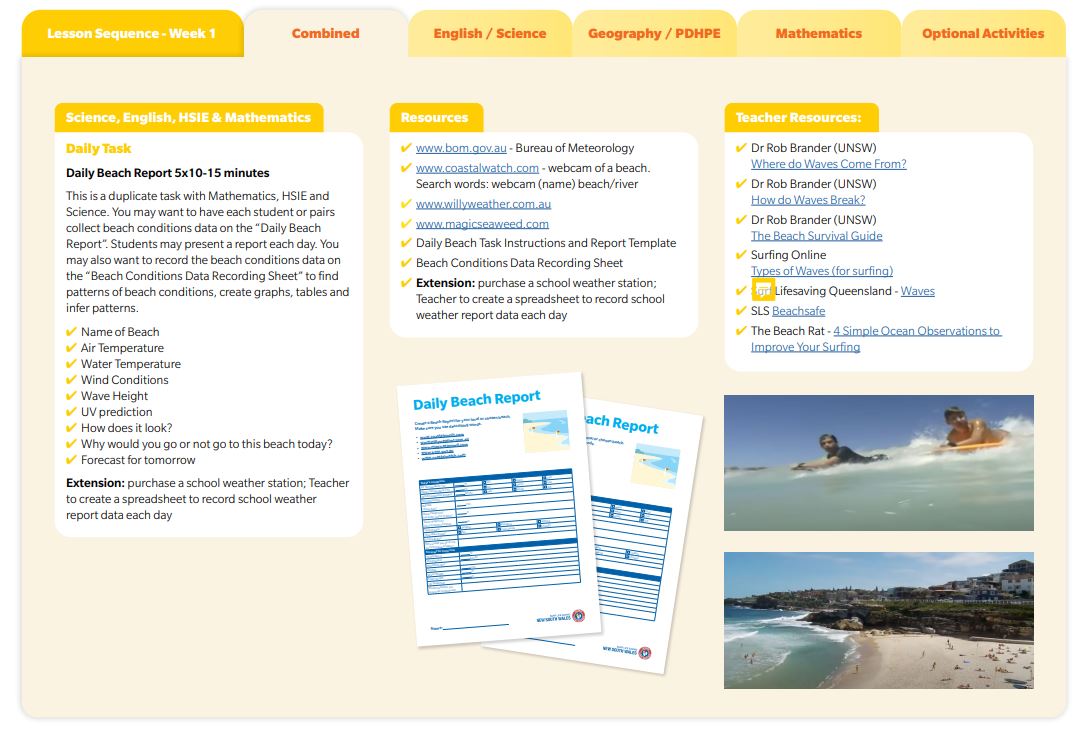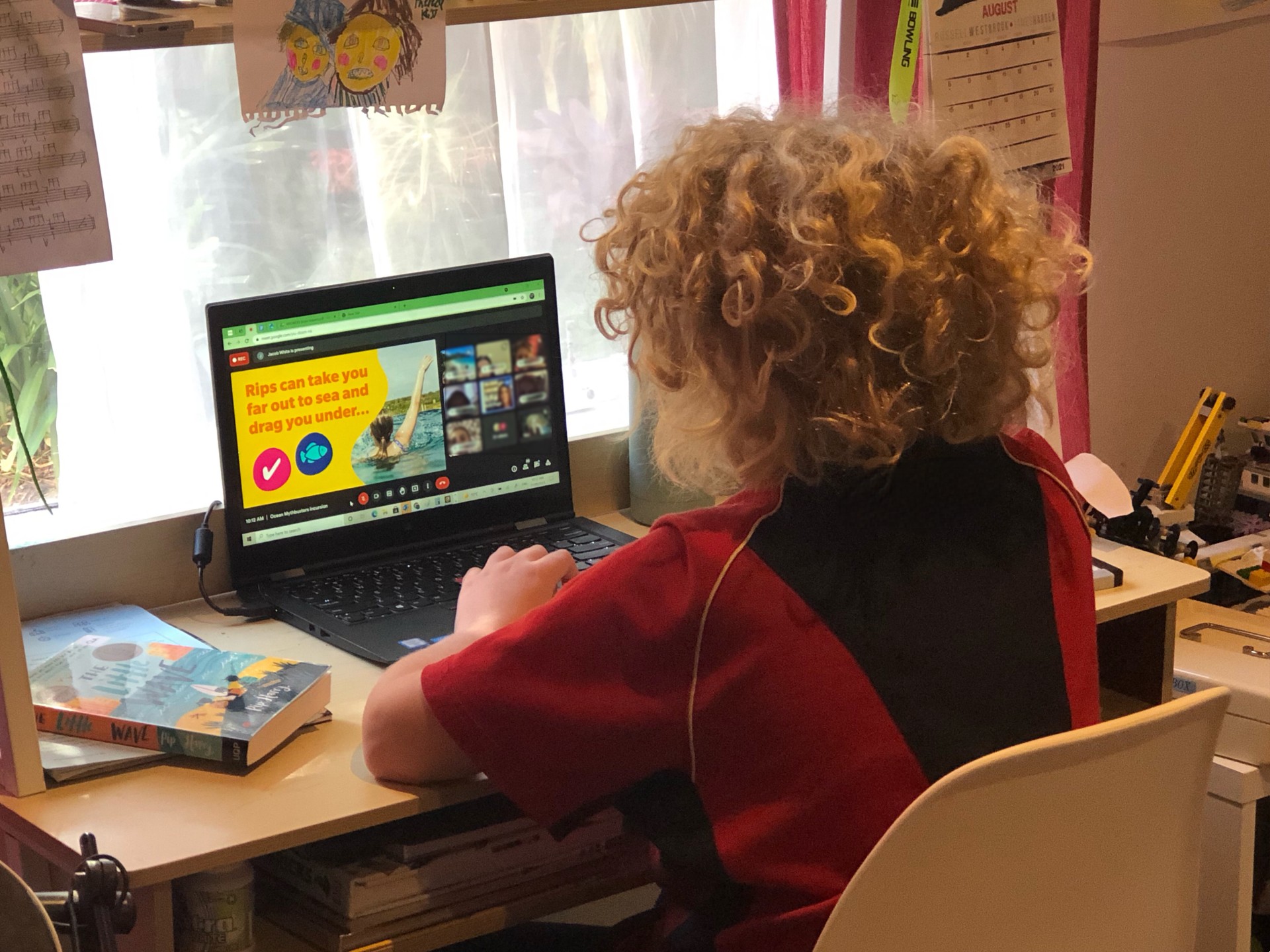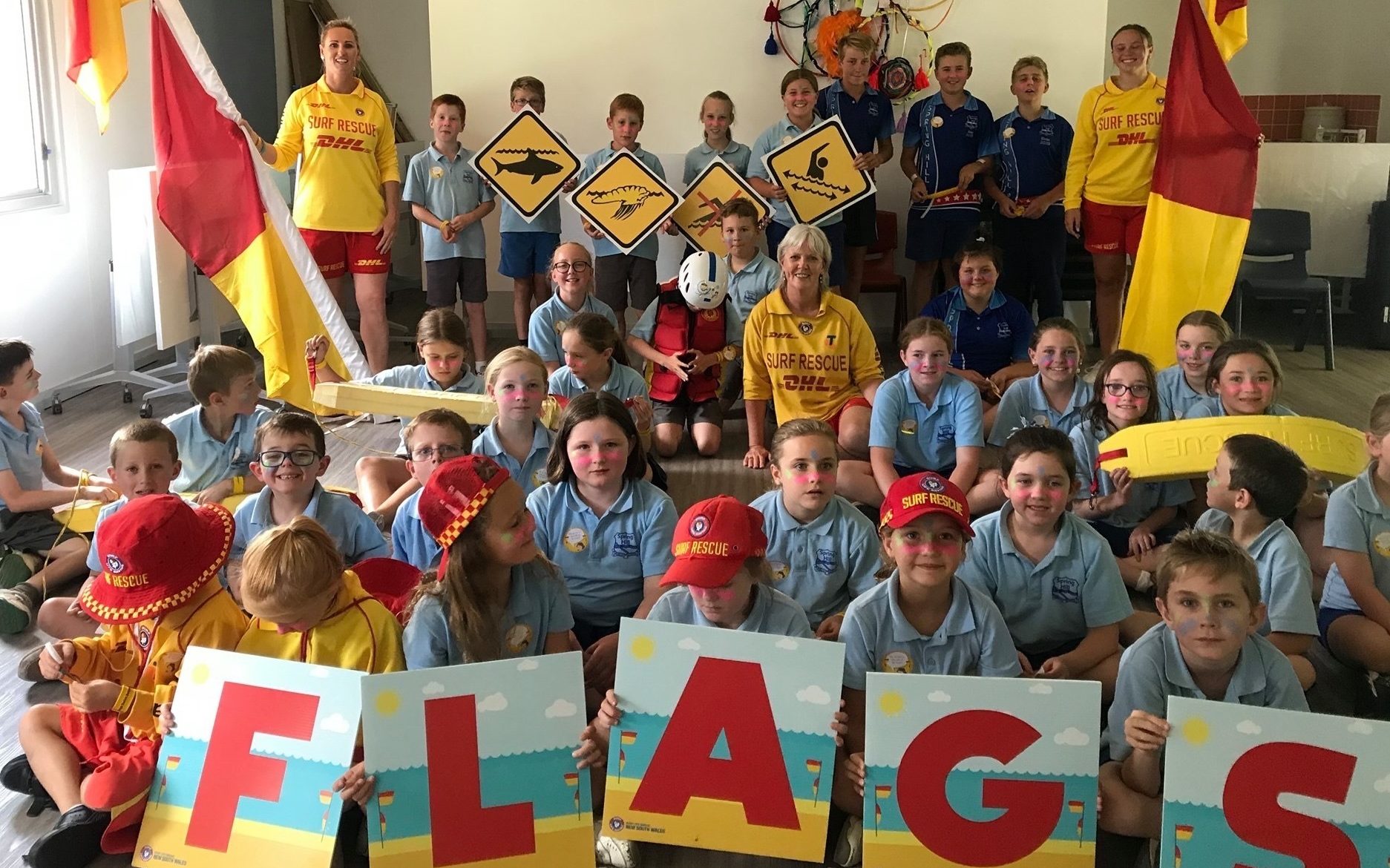Stage 3 Teaching Resources
This curriculum based Stage 3 Unit Outline includes a 3 week, staged based, lesson plan and activities for teachers to download.
Creating quality teacher resources for Stage 3
About this Unit Outline
The beach, coastline and inland waterways are a source of inspiration, a place of discovery and at times generating myths and uncertainties that can alter the confidence and ability to make informed safety decisions by those who are using the beach and waterways. This unit uses artefacts to explore the scientific and mathematical knowledge of aquatic environments.

What you'll find in this Unit:

TEACHING, LEARNING & ASSESSMENT

SYLLABUS LINKS

RESOURCES

CORE LESSONS & TASKS

ACTIVITY SHEETS

RELATED LINKS
Key Inquiry Questions
- How do we develop and apply contextual knowledge?
- How do we respond to, read, view and compose texts?
- How do we develop and apply language forms and features?
- How can I manage transitions and challenges?
- How do empathy, inclusion and respect have an impact on myself and others?
- How can we use strategies and tactics to create solutions to movement challenges?
- How can we work with others to build positive relationships during physical activity?
- How do the structural and behavioural features of living things support survival?
- How responsible am I for my own and others’ health, safety and wellbeing?
- What actions positively influence the health, safety and wellbeing of my community?
- How do people and environments influence one another?
- How do people influence places and the management of spaces within them?
- How do I measure, order and compare objects using familiar metric units of length, area, weight and temperature?
- How do physical conditions affect the survival of living things?
- How do components of digital systems interact with each other to transmit data?
- How do the components of digital systems connect together to form networks?
- How do I compare the areas of regular and irregular shapes?
- How do I manipulate, classify and draw two dimensional shapes, including equilateral, isosceles and scalene triangles, and describe their properties?
- How do I construct, estimate, measure and compare known and unknown angles using degrees?
- How do I use appropriate methods to collect data and construct, interpret and evaluate data displays, including dot plots, line graphs and two-way tables?
- How do I interpret and compare a range of data displays, including side-by-side column graphs for two categorical variables?
- How do I critically evaluate data representations found in digital media and related claims?
Key messages
- Find the red and yellow flags and swim between them
- Look for, and read the safety signs
- Ask a lifesaver or lifeguard for safety advice
- Go swimming with an adult
- Signal for help when you get into trouble in the water
- Dangers of rip currents
- If you are not sure if a marine creature or plant is a hazard, look from a distance and don’t touch it
- Humans can use the aquatic environment to inspire research, creativity and innovation
- The aquatic environment needs to be looked after so future generations can enjoy it
Stage 3 Unit Outline and Activity Sheets
Complement your students learning with our FREE programs:
This unit outline includes opportunities to bring the content to life by engaging with our lifesavers in our virtual session: Ocean Myth Busters.

Bring a lifesaver to your school with our “Lifesaver @ my school” incursion. Our primary school program will focus on keeping safe at the beach and near inland waterways through fun and interactive games and activities.

We're bringing you all the latest beach and coastal education related news, programs and resources for NSW teachers via our On Patrol newsletter.
